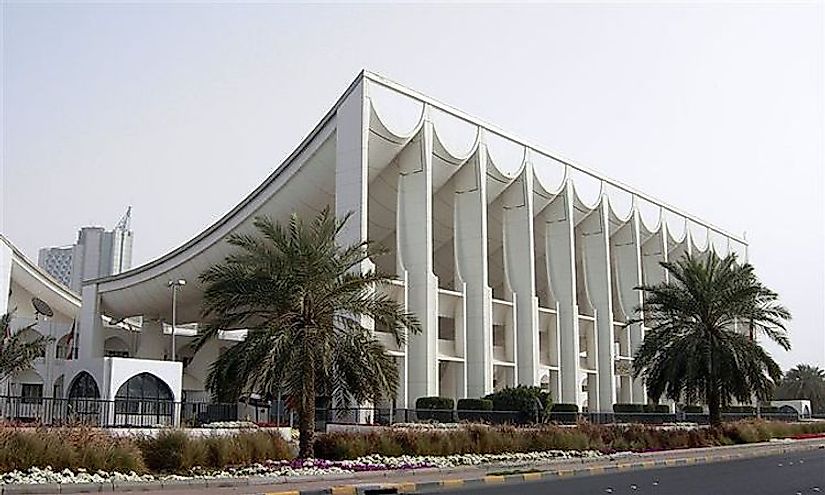What Is The Capital Of Kuwait?

Considered to be a global city, Kuwait City is the capital of Kuwait and also its political, cultural and economic center. Located on the Persian Gulf coast, Kuwait city is home to over 2 million metropolitan inhabitants. The city is characterized by western architectural buildings such as high-rise office structures, malls and hotels alongside traditional Islamic architecture as represented in the city’s historical landmarks and markets.
History Of Kuwait City, The Capital Of Kuwait
Kuwait City began as a fishing village when its first inhabitants arrived in 1613. It was after the arrival of the Bani Utubs in 1714 that the city transformed into a chief trade center of India and the Far East. It is a suitable location on the trade route stretching from Calcutta to Baghdad and Aleppo enabled the city to become a significant stop by 1750. Iraqi merchants fleeing the Persian-besieged Basra settled in the town in 1775, and aimed with trading and boat-building skills, further boosted the city’s trade supremacy. Following the Iraqi merchants was the arrival of the British East India Company which made the city the main stop along its trade routes. Kuwait, by the 1880’s had earned itself the epithet ‘Marseilles of the East’, due to its economic prosperity and boat-making supremacy. Its affluence went on well into the 20th century, giving rise to wealthy and powerful families. Kuwait was not spared from the Great Depression, however, and by the 1930s, some of the city’s wealthy merchants had left the city because of economic hardship. From 1946 however, the discovery of oil propelled the city into rapid urbanization. Independence from the British Protectorate from 1961 saw Kuwait grow to become the most developed nation in the region. Plummeting oil prices and the invasion of Iraq in the 1990s devastated the city, however, Kuwait city has managed to rebuild itself and become a force to be reckoned with in the Middle East.
Economy Of Kuwait City
The sea ports of Kuwait City were particularly important for the country’s trade in Petroleum and fertilizers. Kuwait City houses multiple corporate offices, banks, and headquarters of the large financial institutions such as the Kuwait Stock Exchange. The Kuwaiti dinar has earned itself supremacy as the highest-valued currency unit in the world and most of the city’s inhabitants subsequently pride in a high living standard. The Central Bank of Kuwait is located in the city as is the Kuwait International Airport, which is a world-class airport in the Middle East.
Administration And Trade In The Capital City Of Kuwait
Kuwait City is notably the seat of the country’s National Assembly. Kuwait City houses government ministries, embassies, Supreme Court, diplomatic missions, and headquarters of national corporations such as Kuwait Petroleum Corporation and Kuwait Airways. Kuwait City is a bustling metropolis and souqs remain one of its prized traditions. The traditional markets of the city trade in oriental items including jewelry and gold, spices, handicrafts and second-hand items. The city is also teeming with western-style shopping centers which resemble others in developed metropolises across the world.
Among the cultural and historical landmarks of the city are the Grand Mosque, National Museum, Tareq Rajab Museum, Museum of Modern Art, the famous Kuwait Towers, Seif Palace and the Al-Hashemi Marine Museum. The city’s architectural heritage has made it a major tourist destination in the Middle East.







